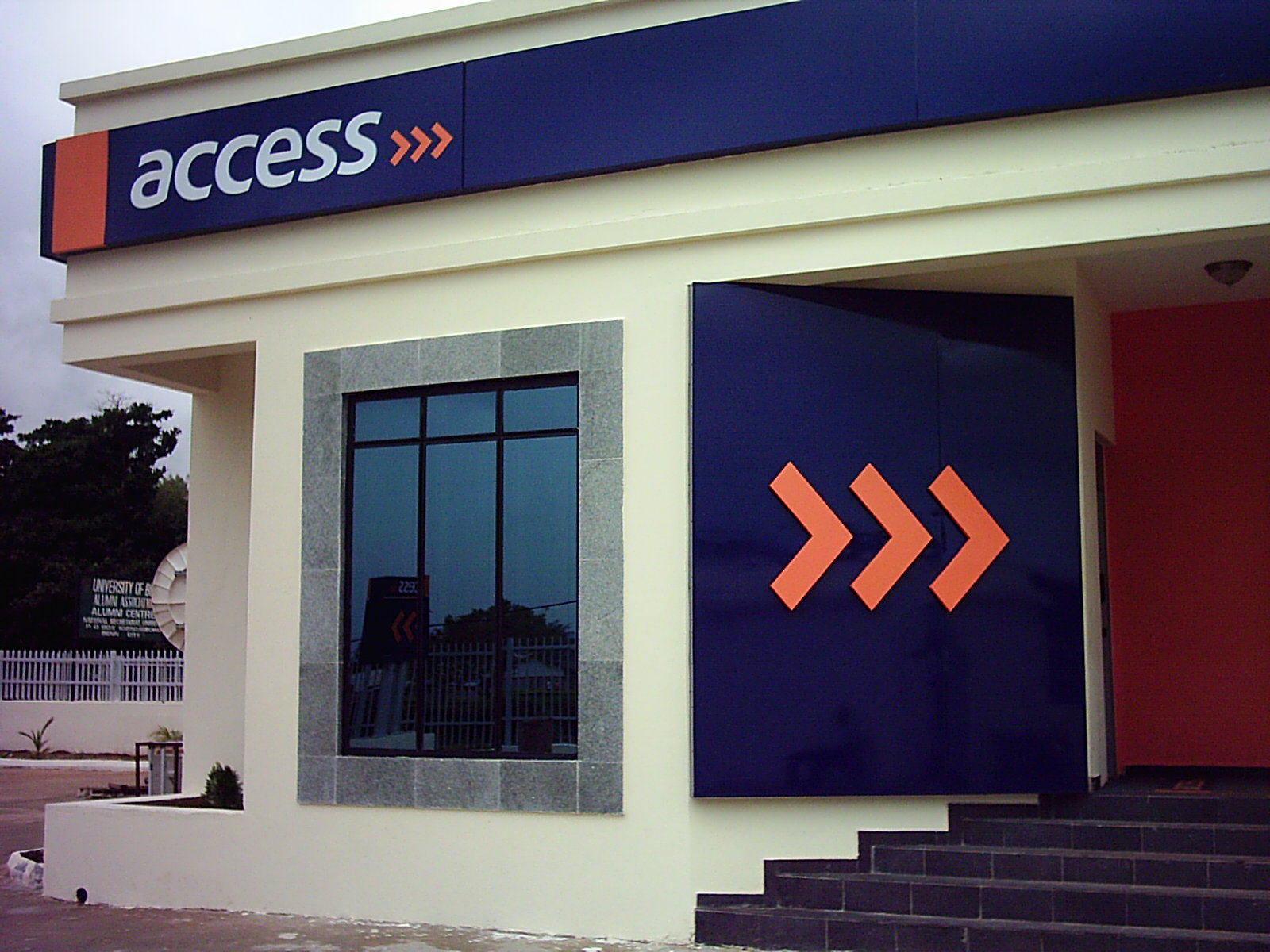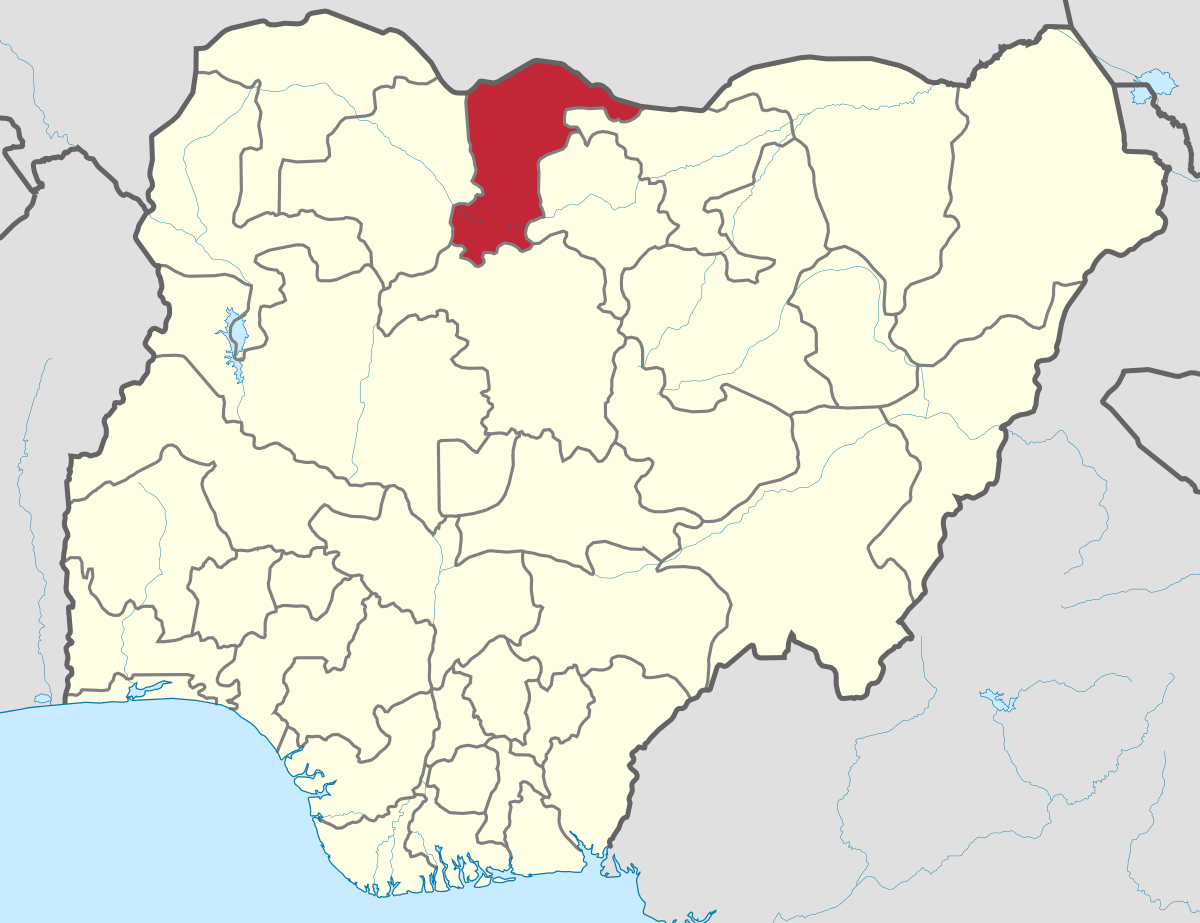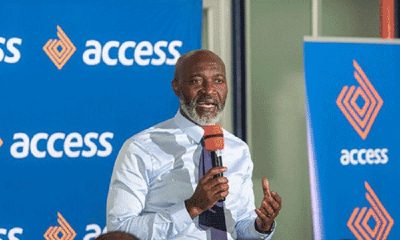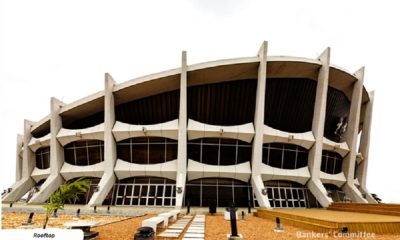Banking
Fitch Affirms ‘B’ Rating on Access Bank

By Dipo Olowookere
The Long-Term Issuer Default Rating (IDR) assigned to Access Bank by Fitch Ratings has been affirmed with a Stable Outlook. Also, the Viability Rating (VR) is affirmed at ‘b’.
A statement issued by the rating agency disclosed that the IDRs of Access Bank are driven by its intrinsic creditworthiness as defined by its VR. Like all Nigerian banks, Access Bank’s VR is constrained by the operating environment in Nigeria (B+/Stable).
The fragile economic recovery restrains banks’ growth prospects and asset quality, with the VR reflecting the lender’s position as one of the country’s largest banks with an overall domestic market share of approximately 11 percent, as well as the bank’s sound financial metrics and reasonable capital buffers, which are at the upper end of rated Nigerian banks. Fitch noted that the VR also factors in the bank’s highly concentrated loan book.
Access Bank has subsidiaries in a further six African countries and in the UK and these represent 25 percent of consolidated assets and generated 30% of group pre-tax profit in 1H18.
Operating conditions in Nigeria are recovering given improving oil prices, which support a modest return to economic growth, and US dollar liquidity in the banking system has eased. However, the operating environment for banks is difficult with minimal sector loan growth and pressure on margins and capital.
Access Bank has fairly robust risk controls and systems and its impaired loans/gross loans ratio (5% at end-June 2018) is sound by Nigerian standards and broadly in line with the 5.7% average for its closest Nigerian peers.
Loan loss cover reached slightly above 100% following implementation of IFRS 9 in January 2018. Restructured loans are lower than at other Nigerian banks at approximately 5% of gross loans but Stage 2 loans classified in line with IFRS 9 are, at around 13% of gross loans, broadly in line with peers’.
The top 20 loans at end-June 2018 represented around 40% of total loans, high by international standards but in line with Nigerian peers’. Exposure to the oil sector, 25% of loans at end-June 2018, is lower than the 30% sector average.
According to Fitch, Access Bank’s VR also reflects adequate profitability although this is weaker than at most other immediate peers. Relative earnings weakness reflects a higher cost structure and a modest retail franchise, resulting in higher cost of funding than peers’. Efforts to attract new retail depositors, particularly through digital channels, continue.
It said liquidity ratios are sound, with cash holdings and government securities representing around 40% of total assets. Foreign currency refinancing risks have eased with the bank issuing a five-year $300 million 10.5% Eurobond in October 2016 (issued by Access Finance BV), which partly refinanced a $350 million 7.25% Eurobond bond maturing in July 2017.
Fitch noted that core capital ratios are lower than those reported by immediate peers, although its assessment is that buffers are adequate.
Access Bank absorbed N78.4 billion ($257 million), equivalent to approximately 15% of consolidated end-2017 equity, of additional expected credit loss provisions required in line with IFRS 9. Following this, its Fitch Core Capital (FCC)/risk-weighted assets (RWAs) ratio stood at 18% at end-June 2018 (peers: 22%).
Banking
All Set for Second HerFidelity Apprenticeship Programme

By Modupe Gbadeyanka
Registration for the second HerFidelity Apprenticeship Programme (HAP 2.0) organised by Fidelity Bank Plc has commenced.
The Divisional Head of Product Development at Fidelity Bank, Mr Osita Ede, informed newsmen that the initiative was designed to empower women with sustainable entrepreneurship skills.
The lender created the flagship women-empowerment initiative to equip women with practical, income‑generating skills and structured pathways to entrepreneurship.
“HerFidelity Apprenticeship Programme 2.0 reflects our commitment to continuous improvement. Having evaluated feedback from the first edition, we have returned with stronger partnerships and deeper mentorship programmes to ensure that women acquire not just skills, but sustainable economic opportunities,” he said.
“At the heart of the programme is guided, real‑world learning. Participants will undergo intensive apprenticeship training under reputable institutions and industry experts across select fields such as hair styling, shoe making, auto mechatronics, and interior decoration,” Mr Ede added.
He noted that HerFidelity Apprenticeship Programme 2.0 goes beyond skills acquisition by offering participants a wide range of business advisory services. These include business and financial literacy training, mentorship support throughout the apprenticeship journey, access to Fidelity Bank’s women‑focused and SME financial solutions, as well as guidance on business formalisation and growth strategies.
Further emphasising the bank’s vision, Mr Ede said, “By integrating structured mentorship with entrepreneurial development, Fidelity Bank is positioning women not just as trainees, but as future employers, innovators, and economic contributors within their communities. This aligns with our mandate to help individuals grow, businesses thrive, and economies prosper.”
Banking
The Alternative Bank Opens New Branch in Ondo

By Modupe Gbadeyanka
A new branch of The Alternative Bank (AltBank) has been opened in Ondo State as part of the expansion drive of the financial institution.
A statement from the company disclosed that the new branch would support export-oriented agribusinesses through Letters of Credit and commodity-backed trade finance, ensuring that local producers can scale beyond state borders.
For SMEs, the bank is introducing robust payment rails, asset financing for equipment and inventory, and supply chain-backed facilities that strengthen working capital without trapping businesses in interest-based debt cycles.
The Governor of Ondo State, Mr Lucky Aiyedatiwa, represented by his Chief of
Staff, Mr Olusegun Omojuwa, at the commissioning of the branch, underscored the importance of financial institutions in economic development.
“The pivotal role of financial institutions to economic growth and development of any economy cannot be overemphasised. It provides access to capital, supporting small and medium-scale enterprises and encouraging savings.
“Therefore, I have no doubt in my mind that the presence of The Alternative Bank in Ondo State will deepen financial services, create employment opportunities and stimulate economic activities across various sectors,” he said.
In her remarks, the Executive Director for Commercial and Institutional Banking (Lagos and South West) at The Alternative Bank, Mrs Korede Demola-Adeniyi, commended the state government’s leadership and outlined the lender’s long-term vision for Ondo State.
“As Ondo State steps into its next fifty years, and into the future anchored on the sustainable development championed during the recent anniversary celebrations, The Alternative Bank is here to be the financial engine for that vision. We didn’t come to Akure to hang banners. We came to fund work, farms, shops, and factories.”
With Ondo State’s economy anchored largely on agriculture, particularly cocoa production, poultry farming, and other cash crops, alongside a growing SME and trade ecosystem, AltBank is deploying sector-specific financing solutions tailored to these strengths.
For cocoa aggregators, processors and poultry operators, the bank will provide production financing, facility expansion support, machinery lease structures, and structured trade facilities under its joint venture and cost-plus financing models, with transaction cycles of up to 180 days for commodity trades and longer-term structured asset financing for equipment and infrastructure.
The organisation is a notable national non-interest bank with a physical network now surpassing 170 locations, deploying capital to solve real-world challenges through initiatives such as the Mata Zalla project, which saw to the training of hundreds of women as electric tricycle drivers and mechanics.
Banking
Recapitalisation: 20 Nigerian Banks Now Fully Compliant—Cardoso

By Adedapo Adesanya
The Governor of the Central Bank of Nigeria (CBN), Mr Yemi Cardoso, announced on Tuesday that the country’s banking sector is making strong progress in the recapitalisation drive, with 20 banks now fully compliant.
Mr Cardoso disclosed this during a press conference at the first Monetary Policy Committee (MPC) meeting of 2026, where he also highlighted positive developments in the nation’s foreign reserves.
On March 28, 2024, the apex bank announced an increase in the minimum capital requirements for commercial banks with international licences to N500 billion.
National and regional financial institutions’ capital bases were pegged at N200 billion and N50 billion, respectively.
Also, CBN raised the merchant bank minimum capital requirement to N50 billion for national licence holders.
The banking regulator said the new capital base for national and regional non-interest banks is N20 billion and N10 billion, respectively.
To meet the minimum capital requirements, CBN advised banks to consider the injection of “fresh equity capital through private placements, rights issue and/or offer for subscription”.
Following the development, several banks announced plans to raise funds through share and bond issuances.
In January, Zenith Bank said it had raised N350.46 billion through rights issue and public offer to meet the CBN minimum capital requirement.
Guaranty Trust Holding Company Plc (GTCO), on July 4, said it had successfully priced its fully marketed offering on the London Stock Exchange (LSE).
In September, the CBN governor said 14 banks fully met their recapitalisation requirements — up from eight banks in July.
With one month to the central bank’s March 31, 2026, recapitalisation deadline, 13 Nigerian lenders are yet to cross the finish line.
Additionally, the governor noted that 33 banks have raised funds as part of the ongoing recapitalisation exercise, signalling robust capital mobilisation across the sector.
He stated that gross foreign reserves have climbed to a 13-year high of $50.4 billion as of mid-February 2026.
-

 Feature/OPED6 years ago
Feature/OPED6 years agoDavos was Different this year
-
Travel/Tourism10 years ago
Lagos Seals Western Lodge Hotel In Ikorodu
-

 Showbiz3 years ago
Showbiz3 years agoEstranged Lover Releases Videos of Empress Njamah Bathing
-

 Banking8 years ago
Banking8 years agoSort Codes of GTBank Branches in Nigeria
-

 Economy3 years ago
Economy3 years agoSubsidy Removal: CNG at N130 Per Litre Cheaper Than Petrol—IPMAN
-

 Banking3 years ago
Banking3 years agoSort Codes of UBA Branches in Nigeria
-

 Banking3 years ago
Banking3 years agoFirst Bank Announces Planned Downtime
-

 Sports3 years ago
Sports3 years agoHighest Paid Nigerian Footballer – How Much Do Nigerian Footballers Earn























